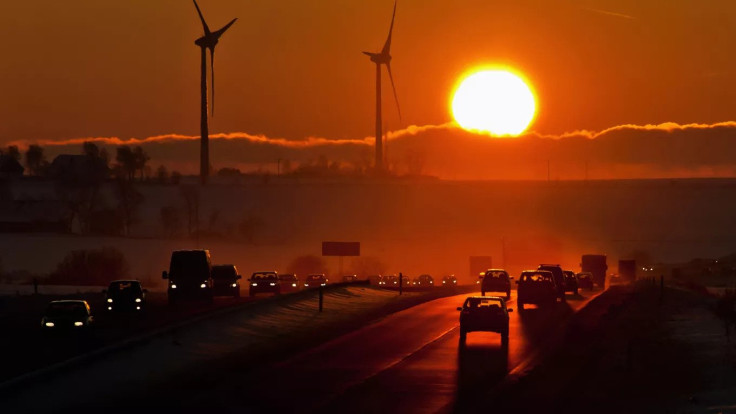Climate change is out of control, warns United Nations after world sees hottest week
The daily average temperature last week was higher than any week in 44 years, according to the analysis by the University of Maine.

The United Nations has time and again warned against the dangerous consequences of increasing global temperatures. The organisation now believes that "climate change is out of control."
This comes against the backdrop of the world seeing its warmest seven days to Wednesday on record, per a report in The Guardian. The world's average temperature hit a new high on Tuesday, reaching 17.18 degrees Celsius. The temperature remained at this record-high on Wednesday as well, per the data released by the US National Centres for Environmental Prediction (NCEP).
According to unofficial analyses by various organisations, the reading stood at its highest since the end of the 19th century. The record warm days are being attributed to climate change and El Niño weather events.
Experts and researchers believe that more such days will be recorded in the coming months as El Niño strengthens.
"If we persist in delaying key measures that are needed, I think we are moving into a catastrophic situation, as the last two records in temperature demonstrates," said UN Secretary General António Guterres.
According to the University of Maine's Climate Reanalyser, the daily average temperature was higher than any week in 44 years of record-keeping during the seven-day period ending Wednesday.
However, the US National Oceanic and Atmospheric Administration (NOAA) has not yet confirmed the analysis carried out by other organisations.
The UN had earlier warned that the likelihood of El Niño development this year could have a severe impact on several parts of the world. It said that El Niño could trigger more extreme weather and climate events across the world.
El Niño is the natural warming of parts of the Pacific Ocean that changes weather worldwide. It is associated with an increase in temperature globally. The hottest year in recorded history, 2016, was an El Niño year.
It is part of a larger phenomenon called the El Niño-Southern Oscillation (ENSO). El Niño is the "warm phase" of ENSO, while La Niña is its "cool phase," according to the National Geographic Society. It is typically concentrated in the central-east equatorial Pacific, and its effects peak during December. The UN experts fear that it could lead to a record spike in temperatures in some regions.
Climate change knows no borders,it's a global challenge we must tackle together
— Nawiri Agricultural Programme (@NAP_Africa) July 5, 2023
Rising temperatures, extreme weather events and ecosystem disruptions affect us all.
Let's unite, prioritize sustainable solutions and make a positive impact for our planet.#ClimateActionNow pic.twitter.com/fYEqp7Lovk
Episodes of El Niño typically last for nine to 12 months; however, sometimes they can last for years. It occurs every two to seven years. It not only affects global climate patterns significantly, but also the marine ecosystem.
The planet is already 1.2°C warmer than in pre-industrial times. In order to limit global warming to 1.5ºC, greenhouse gas emissions must peak before 2025 at the latest and decline by 43 percent by 2030.
A warming of 2°C is the official limit for the end of the century targeted in the Paris Agreement. It is said that Earth's average temperature will hit the 1.5ºC threshold around 2030, a decade earlier than projected.
The only way to limit global warming is to reduce carbon emissions and reliance on fossil fuels by adopting climate-friendly technologies.
The impact on the UK:
The country witnessed its hottest June on record this year, according to the British Meteorological Office. In a statement, the Met Office confirmed that the average mean temperature of 15.8 degrees Celsius in June was the highest in a series since 1884.
"It's officially the hottest June on record for the UK," the Met Office's Mark McCarthy told AFP. "What's striking is the persistent warmth for much of the month, with temperatures widely into the mid-20s Celsius for many and even into the low 30s at times," he added.
Last year was no better for Britain, the country almost turned into a microwave oven due to record-breaking heat. Social media platforms were flooded with pictures of molten roads and train signals. A few airports had to suspend flights after the excessive heat damaged part of the runway.
The UK's infrastructure is not designed to handle extreme heat. The roads and rail networks are not equipped to handle the heat experienced by countries with hotter climates. The heatwave also caused wildfires in several parts of the UK, including London, Kent, Cornwall, and Pembrokeshire.
© Copyright IBTimes 2025. All rights reserved.






















